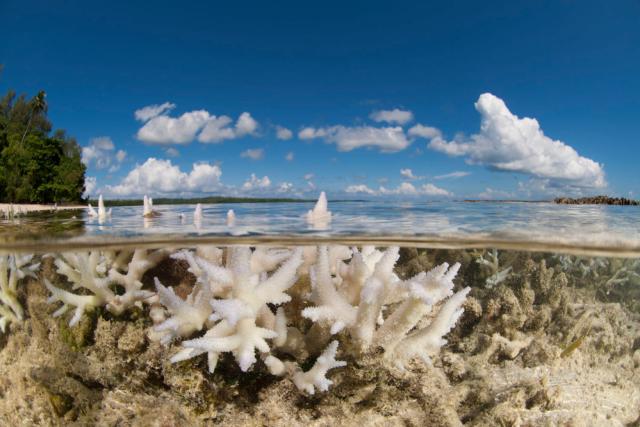
unprecedented pressures
Coral reefs globally are facing unprecedented pressures and are particularly sensitive to climate change and extremes in temperature. Most hard corals grow thanks to a symbiotic relationship between the coral polyp and zooxanthellae - essentially algae - that through photosynthesis produce glucose, energy, to enable the hard corals to thrive.
However when seas are particularly calm with high temperatures the zooxanthellae are expelled which eventually results in the hard corals "bleaching", turning bright white. This weakens the coral skeleton which become fragile and they are rapidly overgrown by seaweed.
Climate change is increasing both the number of calm days and sea temperature at certain reefs and therefore the risk of bleaching events and die-back of hard corals.
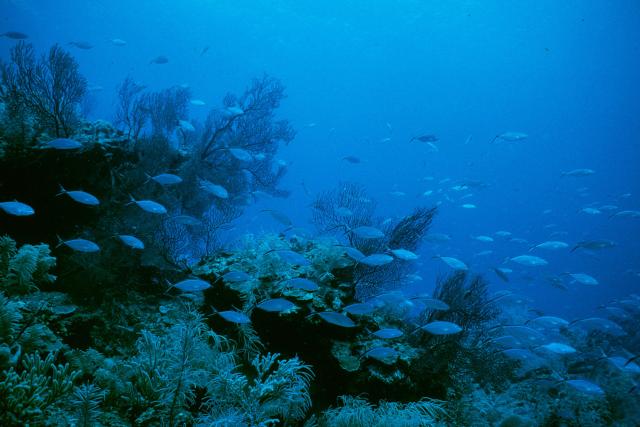
coral reef scientists
Using a robust methodology coral reef scientists identified the 50 coral reef complexes that are most resilient to the impacts of climate change (Bayer et al 2018) and which, if conserved, have the ability to regenerate shallow water coral reefs globally.
WWF is therefore embarking on a “Coral Reef Rescue Initiative” and has identified seven countries namely, Cuba, Tanzania, Madagascar, Indonesia, The Philippines, Solomon Islands and Fiji, where WWF will prioritise our support for the conservation of reef complexes. Securing reefs across these prioritised sites would help support 120 million people that particularly utilise them for their livelihoods and food security; as well as vitally securing 70% of the regeneration potential of shallow water reefs globally.
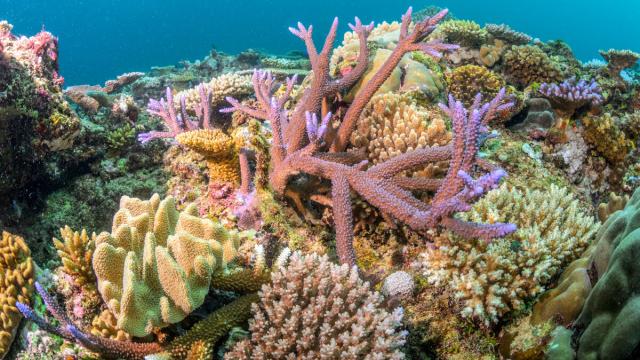
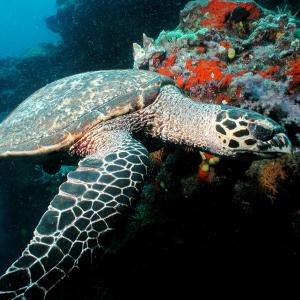 Where we work: the island nation Fiji
Where we work: the island nation Fiji
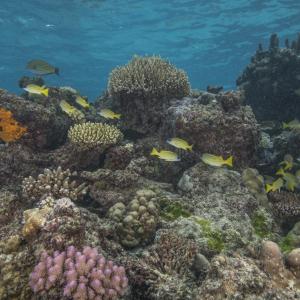 We're protecting and restoring coastal environments
We're protecting and restoring coastal environments